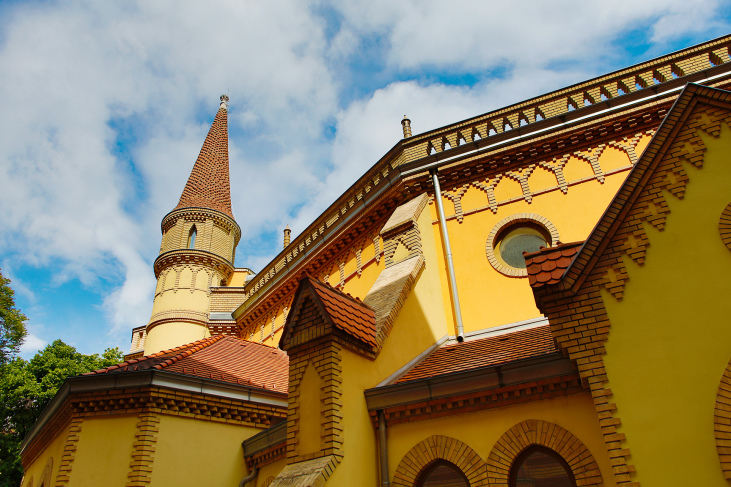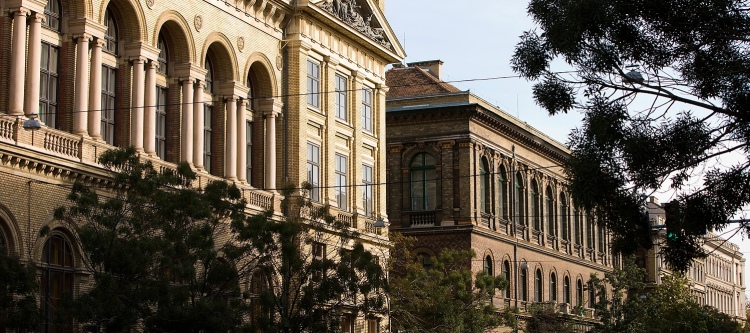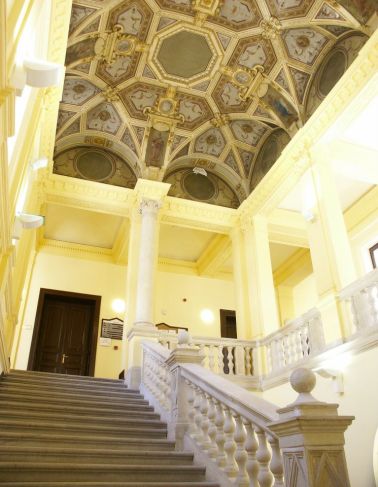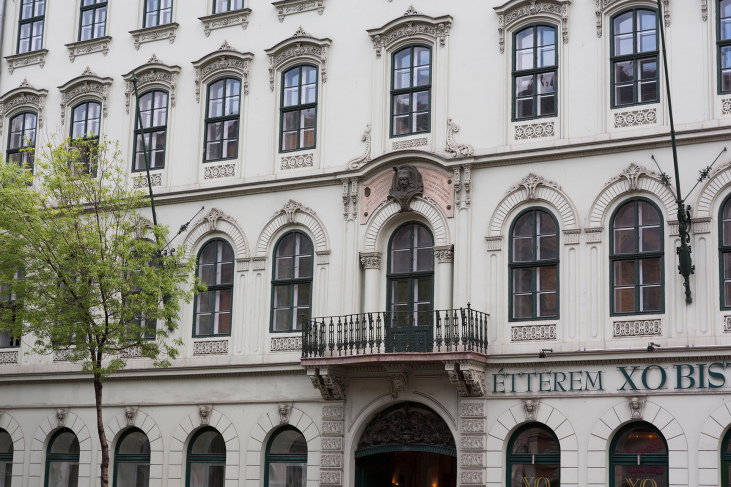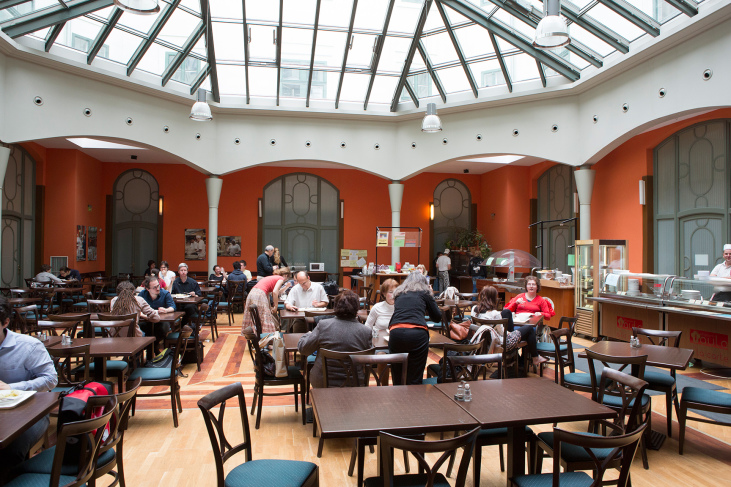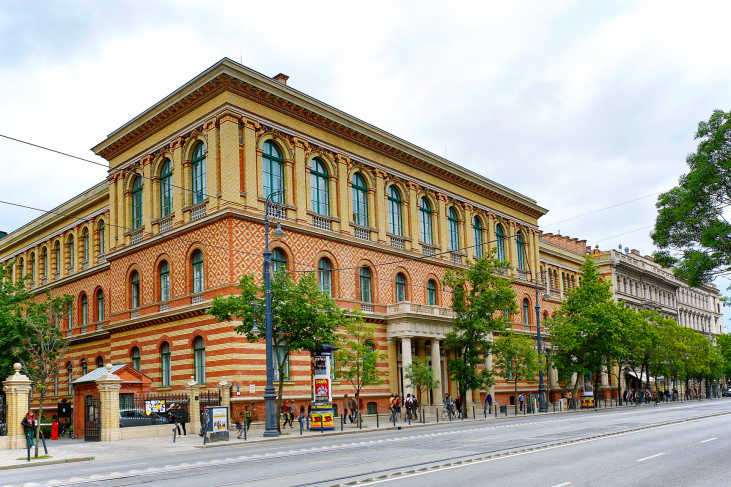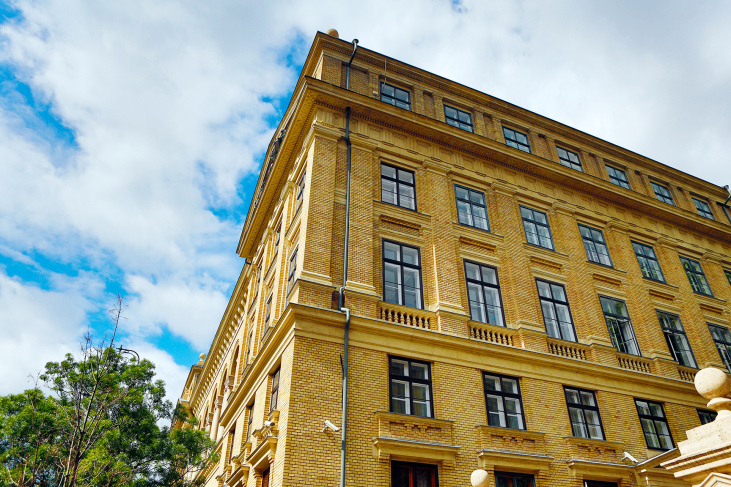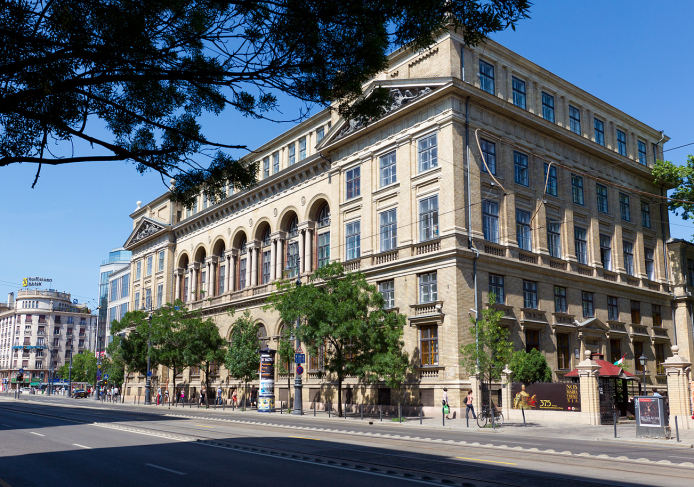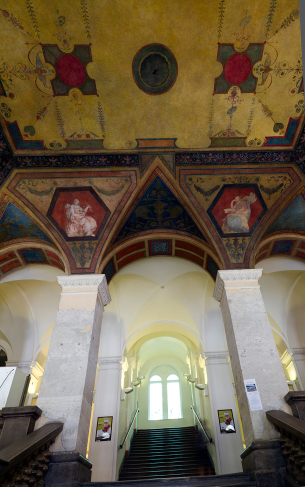Doctoral School of History
Doctoral School of History
Doctor (PhD) of History
Degree program
Doctoral
FF/1289-3/2015
English
4+4 semesters (2+2 years)
240
1
20
The aims of the programs are to prepare students for obtaining their PhD degree through acquisition of latest research methodologies, participation in conferences and teaching expertise in higher education.
The Doctoral School of History offers doctoral studies for internationals in the following fields:
- Ancient History
- Archaeology
- Assyriology and Hebrew-Judaic Studies
- Atelier- Interdisciplinary History Doctoral Program · Cultural History Doctoral Programme
- Early Modern Hungarian History
- Economic and Social History
- History of the Ottoman Empire, Ottoman Rule in Hungary and the Republic of Turkey
- Medieval and Early Modern World History
- Modern and Contemporary World History
Ancient History Doctoral Programme
Leading professor of the program: Prof. Dr. György Németh
The academic background of the doctoral programme is provided by the Department of Ancient History. The research profile of the programme and of the department is focused on epigraphical sources that facilitate research in various fields of social, military, economic, and religious history. The academic staff places a special emphasis on social history, where a number of topics can be best investigated through the increasing corpus of inscriptions. Organizations above the level of poleis (i.e. confederacies and federal states) form an individual course of research. Greek and Latin epigraphy and ancient historiography are further fields of academic interest in the research centre.
The PhD training is recommended for students who have studied History, Latin or Ancient Greek; who are interested in ancient Greek or Roman history; who are capable of analysing sources in Latin and/or ancient Greek; and who are able to conduct individual research primarily in the field of Greek or Latin epigraphy, papyrology, social history, and historiography. We offer courses in English, German, or French.
The PhD programme has cooperated with international partner institutions (Vienna, Tübingen, Cluj Napoca, Zagreb), and is constantly seeking opportunities to develop further relationships.
Archeology Doctoral Programme
Leading professor of the program: Prof Dr. László Borhy
The Archaeology PhD Program of the ELTE Institute of Archaeological Sciences was established in 1993. The doctoral degree is offered in a wide range of fields: prehistoric archaeology, roman archaeology, classical archaeology, archaeology of the migration period and the early Middle Ages, medieval archaeology and archaeometry. During the 4 years of the PhD program the students have to attend lectures and seminars, and they regularly have to give presentations about their accomplishments. The Institute is also proud of its excellent archeological library the collection of which is mostly focused on the archeology of the Carpathian Basin.
Assyriology and Hebrew-Judaic Studies Doctoral Programme
Leading professor of the program: Prof. Dr. Tamás Dezső
The primary goal of the doctoral programs of Assyriology and Hebrew-Judaic Studies is to prepare the PhD candidates for academic career in research and teaching. The programs help the students to understand and familiarize themselves with the latest research methodology and make them able to shape and develop their chosen discipline.
Under the supervision of internationally renowned scholars, the PhD candidates conduct a dissertation project within their individual discipline. The highlighted fields of the program of Assyriology are as follows: the history, cultural history, art, and archaeology of ancient Mesopotamia; the age and ideology of empires; Sumerian and Akkadian linguistics, philology, and historical linguistics; interpretation of literary and historical texts.
The Hebrew and Jewish studies program covers a broad spectrum of topics related to the Hebrew Bible and Judaism, approached using various historical, philological, literary and linguistic methodologies.
Particularly, our faculty has expertise in the following fields: biblical studies, hellenistic Judaism, religions in late antiquity, Jewish-Christian relations; Talmudic and midrashic literature, rabbinic religion and thought, Jewish law (halakhah); responsa-literature; linguistic and cognitive approaches to Jewish studies; Hungarian Jewish history and cultural history after the 18th century, Yiddish cultural history, Jewish sociolinguistics.
Atelier Interdisciplinary History Doctoral Programme
Leading professor of the program: Prof. Dr. Gábor Sonkoly
The doctoral programme of the Atelier Department was established in 1997 as a sub-programme of the History PhD School at Eötvös Loránd University. The main goal of the eight-semester-long PhD course is to prepare the PhD students that they could write and defend their theses. The programme was founded and functions in the spirit of the French Annales School. Consequently, interdisciplinary approach, meticulous methodology and the application of scientific criticism in historical research characterize our teaching. The PhD course is made of doctoral seminars, which are mainly organized about the historical phenomena and problems represented within the topics of “Historiography”, “Culture” and “Social Space”. For English and French speaking students the teaching is based on tutorial seminars about the same topics. In addition, regular lectures by visiting scholars, conferences and doctoral journées d’études help the students to broaden their academic horizon and to deepen their own doctoral research. The professors of the programme participate in several academic networks in four continents. The Atelier Department is part of the network of the École des hautes Études en Sciences Sociales of Paris since 1988, what allowed more than fifty Hungarian students to study with a co-tutorship agreement between Budapest and Paris.
Medieval and Early Modern World History Doctoral Programme
Leading professor of the program: Dr. Balázs Nagy
The Doctoral Program of Medieval and Early Modern European History covers various periods and approaches from late Antiquity to 18th-century European and, in part, world history. The medieval section of the doctoral program accepts doctoral proposals discussing late Antiquity, early medieval and medieval topics on political and social history, history of political thought, and history of Christianity and hagiography. The early modern section includes topics from the Renaissance until the turn of the 18th and 19th century, including the social and political history of the given period, the study of European colonialism, and the position of Hungary in the Habsburg Empire.
Modern and Contemporary World History Doctoral Programme
Leading professor of the program: Dr. Ágnes Szilágyi
The programme started in 1993 with special focus on universal issues in history; even those classes that discuss the history of individual countries lay emphasis on the investigation of the international context. Topics range in time from the French Revolution to the present. We strive to go beyond the conventional Europe-centered approach, thus the history of Asia, the Middle East, Africa and recently of Central and South America is also included and accentuated in the curriculum.
As students are selected from a large number of applicants, they have to meet certain requirements of eligibility: students are expected to possess a solid knowledge of history and to speak and understand at least two foreign languages, one at intermediate, the other at advanced level.
The staff and the students participate in the events hosted by the HAS Institute of History, the Europa Institute, the Institute of Political History and other thematically linked institutes.
Following Programs also offer international topics:
- Cultural History Doctoral Programme
- Leading professor of the program: Prof. Dr. László Csorba
- Economic and Social History Doctoral Programme
- Leading professor of the program: Prof. Dr. György Kövér
- Early Modern Hungarian History Doctoral Programme
- Leading professor of the program: Prof. Dr. Ildikó Horn
- History of the Ottoman Empire, Ottoman Rule in Hungary and the Republic of Turkey
- Leading professor of the program: Prof. Dr. Géza Dávid
Find the structure of the programs on the webpage of the Faculty.
According to the latest entrance exam statistics the Faculty of Humanities is home of the best and most gifted students nationwide. With nearly 8,000 students, the Faculty has been a stronghold of scientific knowledge all over Hungary. Employers inside and outside Hungary are aware that a graduate from ELTE BTK will be of an extremely high standard. Coming to our faculty will increase your career prospects by the time you earn your degree.
Research Institutes, Universities, Museums, Diplomacy, Press and Media
HUF 130 000
2,600 EUR, to be paid in HUF at the exchange rate valid on the day of payment (the exact sum of the tuition fee will be fixed by the Faculty Council for every year)
EUR 30 (non-refundable)
EUR 30 (non-refundable)
2,600 EUR, to be paid in HUF at the exchange rate valid on the day of payment (the exact sum of the tuition fee will be fixed by the Faculty Council for every year)
EUR 30 (non-refundable)
Yes
01, Sep, 2025
09, May, 2025
No
Entry requirements
Master's diploma with qualification (minimum with 'good' qualification)
Language requirements:
Minimum level of language proficiency (oral): (B2)
Minimum level of language proficiency (written): (B2)
Further comments:
- ONLY the following English language exams are accepted:
- TOEFL PBT (Paper-based test): 516-554 or
- TOEFL IBT (Internet-based test): 66-82 or
- TOEFL IBT Home Edition: 66-82 or
- IELTS (International English Language Testing System): 6.0 or
- CEFR (Common European Framework of Reference): B2 or
- Duolingo: 85 - a Bachelor or Master diploma is accepted as proof of language skills If the language of the studies was English
- If your mother tongue is English then you have to have a B2 level or higher language exam from another language.
|
Document |
Comment |
|---|---|
|
Online application form |
- |
|
Master-level degree |
with good qualification or above |
|
Academic CV |
|
|
Research work plan |
3-4 pages |
|
Letter of recommendation |
2 |
|
Certification of language competence |
Please visit https://btk.elte.hu/en/phd/application for the list of language exams acceptable for the application. |
|
Letter of acceptance from the future supervisor |
|
|
List of publications |
if available |
The application starts in the online application system. Students need to register in the system, fill in the online application form, upload the required documents and follow the instructions during the application process.
Applications can be accepted for the topics offered by the supervisors of the doctoral schools. (To be published on the website in December: https://www.btk.elte.hu/en/content/doctoral-application.t.3129?m=124)
Bank information for paying the application fee:
Beneficiary: Eötvös Loránd Tudományegyetem
Account number: 10032000-01426201-00000000
IBAN: HU03 1003 2000 0142 6201 0000 0000
SWIFT: MANEHUHB
BIC: HUSTHUHB
Transfer information: FELVI-BTKPHD C104 C10401/16
Procedure of the entrance examination:
The applicants will be interviewed by an admission committee (21-05-2024-14.06.2024). In this interview, they will be asked about previous university achievements, the individual research plan and the scientific competence in the field of interest.
Approximate date of the interviews: 16 May 2022 – 17 June 2022
applicants are notified of the outcome of the selection until 31-07-2024. Admission letters are sent out until 31-07-2024.
The decision regarding admission or rejection will be sent by post or email by the Department of Doctoral and Academic Affairs.
The admission resolution does not create a student status in itself, only the personal enrolment at the University establishes the student status. Before sending the application, please contact the head of the doctoral training program in the frame of which you wish to study.
Type of entrance examination: Oral
Place of entrance examination: Faculty of Humanities, 1088 Budapest, Múzeum krt. 4/A or online
Further details of the entrance exam:
Review of the candidates is based on the submitted application documents and on MS TEAMS or personal interview. The applicants will be interviewed by an admission committee (entrance examination). In this interview, they will be asked about previous university achievements, the individual research plan and the scientific competence in the field of interest.
The Faculty’s doctoral council decides of acceptance or rejection on the grounds of the admission committees reports made following the interview.
Further details of selection and evaluation:
The ranking is based on a total evaluation of the academic excellence (based on the submitted documents) and the results of the entrance exam. During this entrance exam, the candidate will be asked about previous university achievements, the individual research plan and the scientific competence in the field of interest.
Prof. Dr. Gábor SONKOLY
Head of the Doctoral School of History
Ms. Kinga FÜRTÖN
International PhD coordinator
E-mail: furton.kinga@btk.elte.hu
Postal address: H-1088 Budapest, Múzeum körút 4/A
Faculty of Humanities
Faculty of Humanities
Eötvös Loránd University (ELTE) offers more than 100 degree programs to international students in the fields of Business, Education and Psychology, Humanities, Informatics, Law, Primary and Pre-School Education, Social Sciences and Science. Currently, about 3000 international students study at ELTE and the community of international students is growing from year to year. Check out what our international students think and discover the wide-range of opportunities waiting for you at ELTE. Join the growing international community of ELTE.
Eötvös Loránd University (ELTE) offers more than 100 degree programs to international students in the fields of Business, Education and Psychology, Humanities, Informatics, Law, Primary and Pre-School Education, Social Sciences and Science. Currently, about 3000 international students study at ELTE and the community of international students is growing from year to year. Check out what our international students think and discover the wide-range of opportunities waiting for you at ELTE. Join the growing international community of ELTE.
0
/
0














0
/
0

